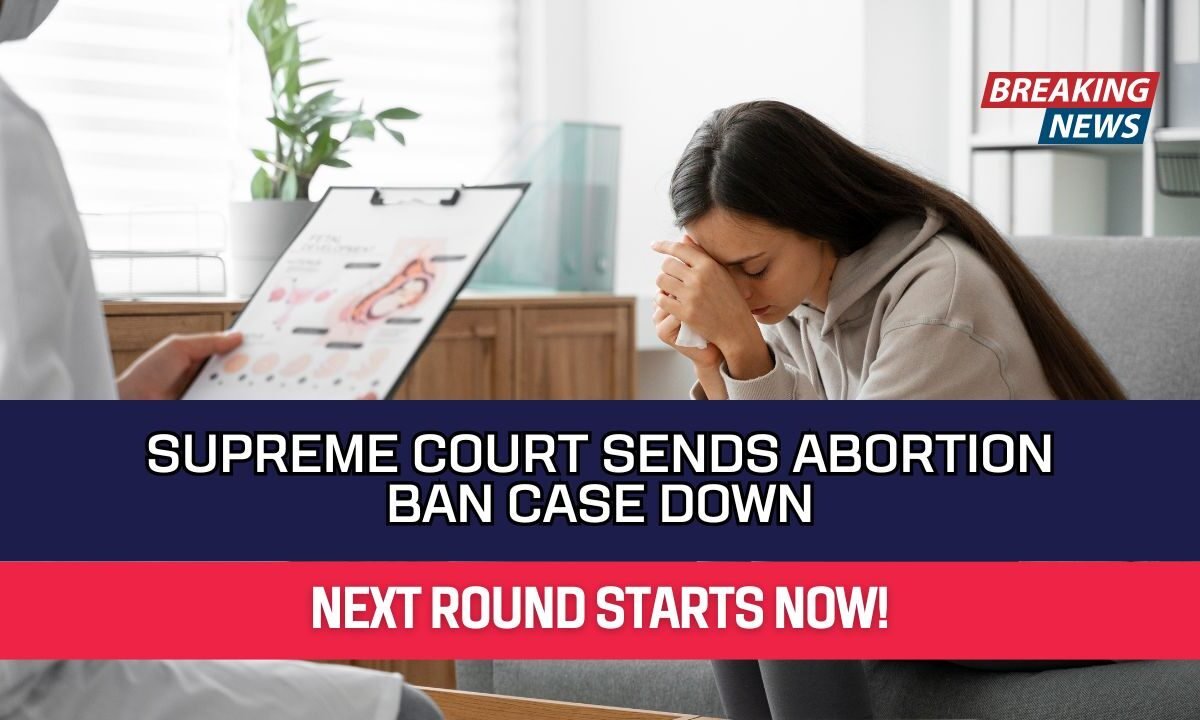Here’s an easy-to-read breakdown of an important court decision in Missouri. The Missouri Supreme Court decided not to immediately review a lower court’s ruling that temporarily stopped most parts of the state’s abortion ban.
This means the case will go to the lower Western District of Missouri first. This move shows how complex our legal system can be, even in cases about people’s rights that feel urgent. Let’s unpack what’s happening—step by step.
What Did the Supreme Court Decide?
The Missouri Supreme Court refused to skip ahead and hear a challenge to the abortion ban right away. Instead of taking the case directly, it told everyone that they must first go through the Western District of Missouri court. This means more time, more hearings, and more waiting.
That delay matters because many people are watching to see if abortion access in Missouri will stay blocked—or come back.
Why Did the Attorneys General Ask for a Quick Ruling?
The Attorney General of Missouri, Andrew Bailey, wanted the Supreme Court to bypass the lower court and rule fast.
He hoped for a quick decision to put the state’s abortion restrictions back into effect. But the Supreme Court said no—they ruled unanimously that skipping the routine path isn’t allowed here.
What Does the State Constitution Say?
By law, only the Supreme Court can rule on whether a law in Missouri breaks the state or US Constitution.
But the judges said that what’s being asked now—reviewing a preliminary injunction (a court order that paused enforcement)—is not the same as deciding if the law is unconstitutional. The injunction is just a stop order, not a full judgment.
What Is the Background of This Case?
In November, Missouri voters made a move—by approving a measure that put the right to abortion into the state’s constitution. Right after that, Planned Parenthood and other supporters filed a lawsuit.
They want to block Missouri’s nearly total abortion ban plus so-called TRAP laws—rules that make it harder for clinics to operate safely.
What Happened in the Lower Court?
A Circuit Judge, Jerri Zhang, working in Kansas City (the 16th Circuit), has already issued a preliminary injunction—not once, not twice—but three times.
This means she repeatedly paused enforcement of the ban and most of the extra restrictions. She did this because she found that Planned Parenthood is likely to win the case on its legal merits.
Why the Supreme Court Didn’t Step In
The Supreme Court noted that a preliminary injunction doesn’t make a final decision about whether the law is constitutional. It’s just a tool to keep things in place while the case continues.
The court wrote that blocking enforcement temporarily “in no way adjudicates the merits” of the case. In other words, it doesn’t decide the big constitutional questions.
Reaction from Planned Parenthood
Dr. Margaret Baum, chief medical officer of Planned Parenthood Great Rivers, shared a clear message: the ruling supports what Missourians voted for—the right to access abortion.
She assured people that “Planned Parenthood is still here to provide vital care Missourians need in their own communities, including procedural abortion.”
Where the Abortion Ban Case Goes From Here
Now the case goes back to the lower courts—the Western District of Missouri. That court will hold hearings to look closely at whether Missouri’s abortion ban and related laws are constitutional.
Depending on what happens there, it could go up for appeals again, and eventually back to the Supreme Court—but that will take time.
Why This Case Matters
- Abortion Access – This affects whether people in Missouri can actually get abortions under the new constitutional right.
- Law Process – It shows how our legal system follows steps—even in big cases, courts must take things in order.
- Voter Power – Voters decided to add abortion rights to Missouri’s constitution—and now that decision is being tested in court.
- Legal Questions – The case raises big questions about how far abortion bans can go and whether they break the constitution.
In simple terms, the Missouri Supreme Court has decided not to rush into this highly important case. Instead, they have sent it back down to the Western District of Missouri.
Although Missourians voted to add abortion rights to their state constitution, the state’s near-total abortion ban and restrictive TRAP laws remain paused for now—thanks to Circuit Judge Jerri Zhang’s repeated preliminary injunctions.
The court said that deciding whether the law is constitutional can’t happen in a summary way, so the case must go through proper court steps first. Planned Parenthood praised the decision and reassured people that they are ready to continue providing care.
The next chapter will play out in the lower courts, and it will take time before final answers come. This case matters because it shapes reproductive rights in Missouri, shows how our legal system works, and tests the power of what voters can do when they change the state’s constitution.




